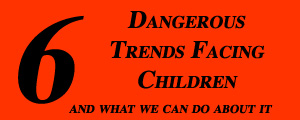 When we talk about confidence in oneself we must look at the idea of having confidence in our mind and body. For years now we have been learning more about eating disorders and how they affect some in our society. Each of us though can be a ‘gatekeeper’ in identifying and helping those who may be partaking in any of these destructive behaviors. How can we identify them?
When we talk about confidence in oneself we must look at the idea of having confidence in our mind and body. For years now we have been learning more about eating disorders and how they affect some in our society. Each of us though can be a ‘gatekeeper’ in identifying and helping those who may be partaking in any of these destructive behaviors. How can we identify them?
Anorexia nervosa – Those suffering with this BEHAVIOR do not eat enough food because they think they are too fat, even though they may be very thin.
Bulimia nervosa – Those suffering with this behavior will eat and many times overeat and then purge after overeating.
Binge-eaters – cannot control the amount of food they eat.
So how is it that individuals develop these behaviors? For many they do not see their behavior as being self-harmful, and were only trying to deal with or solve another problem. After doing some research here are the some of the most common causes of eating disorders:
- Major life transitions
- Family patterns and problems
- Social problems
- Failure at school, work or competitive events
- A traumatic event
- Major illness or injury
- Other psychiatric illnesses (triggered biologically, or previous obsessive compulsive symptoms)
It is not really known why some individuals might develop these disorders and others will not but given the list from above, there are things to consider that may help you see if a person or even yourself may have a propensity to develop an eating disorder.
Transitions such as entering high school, college or the major illness or death of someone close to them can be overwhelming and the loss of control can trigger this disorder.
If an individual comes from a dysfunctional family such as eating disorders, alcoholism, sexual abuse, verbal or emotional abuse can all trigger this disorder. Fear of losing control or seeing eating as the one thing you can control can change eating patterns.
Being bullied, teased about appearance, difficult breakup, they may begin to believe that it happened due to being fat and so they might try to protect themselves.
If self esteem is tied to success in school, work or sports, any failure may trigger an eating disorder as the person attempts to improve themselves and make themselves feel better about themselves.
Up to 2/3 of patients for eating disorders have a history of being the victim of sexual or physical abuse
About 1/3 of patients also report having struggled with depression, anxiety or other symptoms and therefore use eating as a way of trying to controlling their life.
Not having learned to deal with problems and therefore avoiding them can sometimes move a person to wanting some control of some part of their life and eating is what they turn to.
While these conditions are many times noted in women and girls in our society, eating disorders and excessive exercise are not limited to women. In our next posting we will talk about the body image problem facing men.
So what can we do to be safe? Eat healthy, learn and teach your children problem solving skills at a young age, and learn about the the effect that the media is playing on all of us, but especially our children with their images of the perfect bodies and looks of individuals. Taking these steps is SELF DEFENSE.
Learning balance in our eating habits is a part of what we teach in our classes to our students. Getting a proper amount of exercise is critical in feeling good about ourselves. Balanced Life Skills is here to be a part of your “village”.
Here is a link to an article on What Causes Anorexia and Bulimia in Teens?

